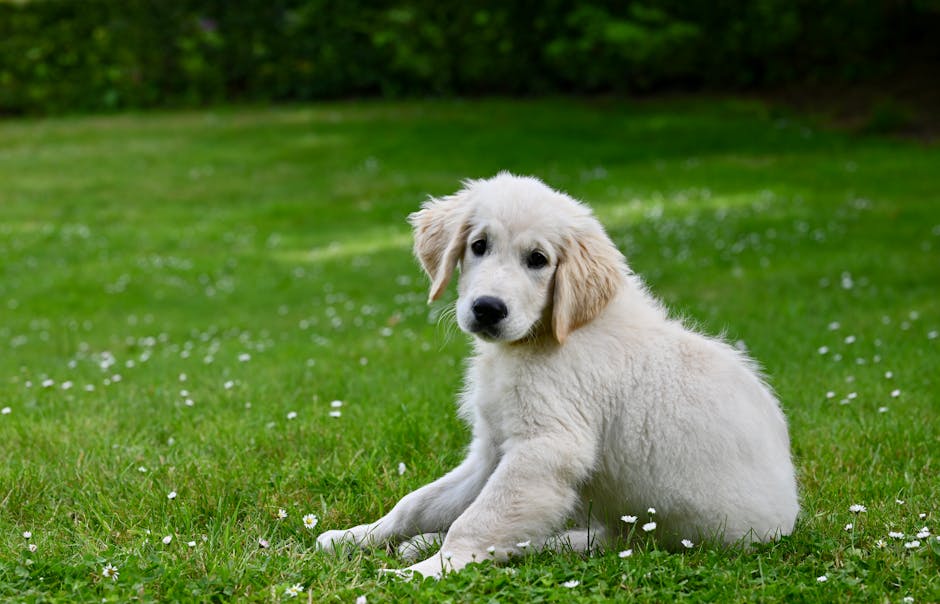Did you know that play is a crucial aspect of a puppy’s development, significantly impacting their behavior, learning, and social skills? Understanding the multifaceted importance of play can transform the way you interact with your furry friend and enhance their well-being!
The Historical Background of Puppy Play
The Evolution of Play in Puppies
Historically, play has been an essential part of the lives of many animals, including our domesticated companions. In the wild, playful behaviors among young animals serve as a survival mechanism—helping them practice skills needed for hunting, social interaction, and self-defense. For dogs, playtime often mimics these essential skills, ensuring they develop into well-rounded adults. Understanding this evolutionary perspective highlights the innate need pups have for play as a means of growth.
Modern Dog Training and Puppy Play
The concept of incorporating play into dog training has evolved significantly since the mid-20th century. Initially focused on obedience and discipline, training practices have shifted to be more holistic. The 1980s saw the rise of positive reinforcement methods, emphasizing play as a vital tool in training and bonding. The understanding that puppies learn best through play has now influenced various training programs prioritizing fun and engagement in the learning process.
Current Trends and Statistics in Puppy Play
The Rise of Structured Playdates
In recent years, structured playdates and puppy socialization classes have gained popularity among pet owners. Studies indicate that puppies who participate in regular playdates develop better social skills and are less likely to exhibit behavioral problems. Pet experts recommend that puppies engage in supervised social play with other dogs—these interactions shape their future temperament and adaptability.
Statistics on Puppy Development Through Play
Recent surveys reveal that over 70% of puppy owners recognize the importance of play in their pets’ lives. Furthermore, studies show that puppies exposed to varied play experiences during their critical socialization period (between 3 and 14 weeks of age) are more likely to develop into well-adjusted adult dogs. This quantitative data underscores the pressing need for owners to prioritize play in their puppies’ daily routines.
Practical Advice for Encouraging Puppy Play
Creating a Play-Friendly Environment
To encourage healthy play behaviors, it’s essential to create a safe and stimulating environment for your puppy. Designate a play area free of hazards, where your puppy can explore and interact with toys and other dogs. Use a variety of toys to challenge your pup’s instincts—consider tug ropes, fetch balls, and puzzle toys to keep their minds engaged.
Incorporating Training into Play
Integrating training into playtime can enhance the experience for both you and your puppy. This approach not only makes learning fun but also improves your puppy’s focus and responsiveness. Use cues and commands during play, rewarding them for good behavior with treats or praise. This method reinforces desired behavior while maintaining the joyful essence of play.
The Future of Puppy Play and Innovations
Advancements in Interactive Toys
The future of puppy play is likely to see significant advancements in interactive toys. Innovations in technology have already begun to shape how puppies engage with playthings—smart toys that respond to a dog’s actions and promote physical activity are on the rise. These products enhance playtime, making it both entertaining and beneficial for cognitive development.
Virtual Play Solutions
As the pet industry evolves, virtual dog play platforms are emerging, connecting puppies and owners with trainers and other pups online. These platforms provide access to a wealth of resources, including virtual training sessions that emphasize play. This innovative approach allows for flexible engagement and helps owners navigate the complexities of puppy ownership, even from a distance.
Final Thoughts on The Importance of Puppy Play
Play is not just a recreational activity for puppies; it is a fundamental component of their development, helping them socialize, learn boundaries, and build physical health. Engaging in regular playtime not only strengthens the bond between a puppy and their owner but also lays the groundwork for a well-behaved adult dog. Prioritizing play ensures that your puppy grows into a happy and balanced canine companion.
Further Reading and Resources
-
“The Power of Play: A Pet Parent’s Guide” by the American Kennel Club – This comprehensive guide discusses the significance of play in dog training and socialization, offering various activities suitable for different breeds and ages. It emphasizes how engaging in play can improve behavioral issues and strengthen the human-animal bond.
-
“Puppy Development and Playtime: A Guide for New Owners” – A valuable resource that breaks down key stages of puppy development and explains how play contributes to learning and social skills. It includes tips for creating an enriching play environment for your puppy.
-
“Interactive Play: Enhancing Your Puppy’s Social Skills” – An online article focusing on the benefits of structured interactive play sessions with other dogs and humans. It provides insights into choosing the right playmates and activities to ensure safe and beneficial play.
-
“The Role of Play in Canine Training” – A research paper outlining the scientific perspective on how play impacts training outcomes in dogs. It explores different training methods that incorporate play and highlights its importance in learning cues and commands.
-
“How to Recognize Healthy Play vs. Aggression in Puppies” – This resource teaches puppy owners how to differentiate between playful behavior and signs of aggression, helping prevent potential mishaps during playtime. Understanding these cues can lead to safer, more enjoyable interactions for both puppies and their owners.




